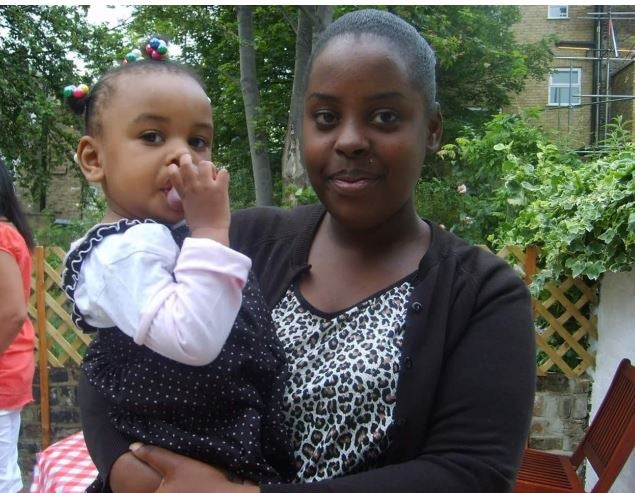
A systemic failure to provide basic physical care on NHS mental health wards is killing patients across the country, despite scores of warnings from coroners over the past decade, The Independent can reveal.
An investigation has uncovered at least 50 “prevention of future death” reports – used by coroners to warn health services of widespread failures – since 2012, involving 26 NHS trusts and private healthcare providers.
Cases include deaths caused by malnutrition, lack of exercise, and starvation in patients detained in mental health facilities. Experts warn that poor training and a lack of funding are factors in the neglect of vulnerable patients.
Our investigation uncovered:
- Staff failing to carrying out basic health checks, such as assessment for risk of blood clots
- Cases of nurses and care assistants without adequate CPR training
- Doctors unable to carry out emergency response procedures
- Patients not treated for side effects of antipsychotic medication
- Rapidly deteriorating health going unnoticed and untreated
Coroners have exposed multiple cases of mental health patients receiving inadequate treatment in general hospitals, with their illness being mistaken for a psychiatric problem.
The Independent can reveal that a fifth of patients in mental health units across the country are not receiving basic physical healthcare checks upon admission, according to a report by the National Confidential Enquiry into Patient Outcome and Death.
The report, carried out this year, warned of “significant missed opportunities” by health services to identify and treat physical health conditions in mental health patients. The review explained that deterioration in physical health often follows admission to inpatient units.
It comes as NHS England’s national clinical director for mental health was forced to write to hospitals, warning them of the need to offer physical health checks.
Dr Rosena Allin-Khan, Labour’s shadow mental health minister, called for a rapid review of mental health inpatient services. She told The Independent: “The government needs to get a grip of the ongoing crisis in mental health hospitals – current conditions are inhumane. Patients deserve better.”
‘I’m left with so many questions’
Yvonne Eaves died from a blood clot while an inpatient at the Greater Manchester Mental Health NHS Foundation Trust in 2020, after staff within the unit failed to carry out a risk assessment for blood clots.
Great Manchester coroner Nigel Meadows attributed her death to “a gross failure to provide her with basic medical care”. Hers is one of four cases in which coroners warned of inadequate blood clot assessment and treatment within inpatient units.

The 69-year-old had suffered from mental illness from a young age. In January 2020 she was admitted to a unit run by the Greater Manchester mental health trust, and was noted as having “several long-standing serious deep infected ulcers and wounds”.
Eaves was transferred to a hospital, where she was given preventative medication for venous thromboembolism (VTE), or blood clots, and was then discharged back to the mental health unit. But the treatment was not continued when she was returned to the mental health unit.
Speaking to The Independent, Lorraine Fallon, her sister, said: “I’m left with so many questions surrounding Yvonne’s death, like would Yvonne still be here if she’d had the right assessments and medication?
“It’s impossible to put such a funny, eccentric character into words. Yvonne had a magnetic personality and left an impression on everyone she met. She was a second mum to my son Sam. She is a great loss and I miss her with every fibre of my being.”

Gill Green, of the Greater Manchester Mental Health NHS Foundation Trust, said improvements had been made to physical healthcare provision, including a new strategy and the introduction of new job roles with a physical healthcare focus.
Last year, the inquest of Jonathan Kingsman, who died from a blood clot aged 47 in a unit run by the Cambridgeshire and Peterborough NHS Foundation Trust, prompted a coroner to write to the Department of Health and Social Care to warn that national guidelines for blood clot assessments were failing to take into account the risks associated with antipsychotic medication.
Kingsman’s wife Lara told The Independent: “If you’ve got someone with acute mental health problems, you feel that they’re safer, or hopefully safe [in hospital]. I certainly don’t blame any individuals looking after Johnny. I know how under pressure these people are, and they have to work within the guidelines that they’re given. A friend looked at the risk assessments and said, ‘You could drive a truck through that risk assessment in terms of blood clots.’”
‘We know we’ve got to do more’
Dr Lade Smith, inequalities lead for the Royal College of Psychiatrists, said: “If you have a severe and enduring mental health problem then you are likely to die 15 to 20 years earlier than someone in the general population. That’s not fair.”
Dr Smith said that the coroners’ warnings uncovered by The Independent highlight the problems caused by a “fragmentation of care”, with psychiatrists struggling to get patients access to the appropriate physical healthcare.
She said: “As a psychiatrist, we know we’ve got to do more. But we can’t do this on our own. We need our distant partners, our physical health colleagues, to become partners in this.”
Margaret Flynn, who chaired the 2011 review into the Winterbourne View scandal, which exposed the horrific abuse and poor treatment of inpatients with learning disabilities, said that when vulnerable people are admitted, “They’re seen to be there because they’re mad or bad. So they’re not looking at people’s physical healthcare.”
Throughout her review, Ms Flynn said, she found that patients were sometimes “overfed” and that weight gain was a “huge problem”.
Ben King, who had Down’s syndrome, died at Cawston Park private mental health hospital in Norfolk. Last year an inquest found he had “died due to inadequate weight management” and the failure to diagnose a condition linked with obesity, as well as “inadequate consideration” of medication.
King’s death was one of three to prompt a major review into the hospital.
In another key NHS review published last year, into the death of Clive Treacy, who was detained in mental health units for 10 years, the report’s chair Beverley Dawkins said: “People have assumed that the teams in those units do have all the necessary skills to manage people’s physical healthcare, and yet frequently the evidence is to the contrary. Many people in those units recorded not going out for exercise, not going out for a walk, sometimes not even getting off the ground.”
She said that despite failures being highlighted for more than a decade, there was still inadequate funding and focus from governing bodies.
‘Sent to her death at an early age’
According to the National Confidential Inquiry into Suicide and Safety in Mental Health, an “early warning score” – a measure intended to spot signs of serious deterioration in health – was not used for a quarter of patients who might have benefited from it.
Coroners’ reports seen by The Independent repeatedly warn of failures by staff to identify when a patient’s physical health was deteriorating.
Roxanne Brown, a young mother, died aged 31 following “neglect” by the Shrewsbury Court private hospital in Surrey, which has since been closed following a critical report by the Care Quality Commission (CQC).

According to an inquest report shared with The Independent, Brown was admitted in March 2019. Seven months later she was showing signs of a high temperature and an elevated pulse rate, and was taken by a support worker to her GP.
Patients whose health is deteriorating are assessed and assigned a “modified early warning score”. However, Brown’s score was not shared with the GP, who then diagnosed a chest infection. Evidence examined during the inquest found that, had the GP seen her score, they would have referred her to A&E.
Further, the GP’s advice to take her to A&E if her condition worsened was not noted down or followed by staff.
Matthew Turner, the barrister representing Brown’s family, said that the failure of staff to spot deterioration appears to be “part of a wider problem of poor physical healthcare of patients in mental health hospitals”.
Brown’s mother, Ruby Brown, said: “Every day seems like the day she passed away. Worst of all, I was not there to get the medical help she so needed, to comfort her and to let her know that I would do all I could to make things right. Unfortunately, I was not made aware of any of the things that happened to her; that was hidden from me.
“She would still be alive to this day if she was not sent to her death at the early age of just turning 31, and what would have become of her relationship with her daughter who is now 14 years old?”
‘Urgent action is needed’
The charity Inquest said that a key problem is the division of healthcare between mental and physical health. Lucy McKay, of Inquest, told The Independent: “Urgent action across the NHS is needed to increase connection and communication between services and ensure mental health units are better integrated with professionals who can monitor and treat physical ill health.”
In 2019, the CQC published requirements for mental health care providers to carry out assessments and monitoring of physical health. Jemima Burnage of the CQC told The Independent: “It is essential that staff in mental health settings are meeting the physical as well as mental health needs of patients as a matter of priority.
“We are clear that providers must undertake appropriate assessments and regular monitoring of the physical health of people being cared for in inpatient mental health services.”
Andy Bell, deputy chief executive at charity the Centre for Mental Health, said: “It can be hard to get access to physical health expertise in mental health hospitals. By and large it’s not part of what is available, and mental health hospitals have high bed occupancy.”
An NHS spokesperson said that all providers of mental health and learning disability services are “contractually” required to offer physical health checks to patients. They added: “The NHS has recently reminded local areas of this, as well as making additional funding available to increase the number of multidisciplinary staff in hospitals, including occupational therapists and peer support workers.”
A Department of Health and Social Care spokesperson said: “Anyone receiving treatment in an inpatient mental health facility should receive safe, high-quality care and should be looked after with dignity and respect. We are considering what is needed on wider issues for mental health inpatient care, and will update in due course.”







